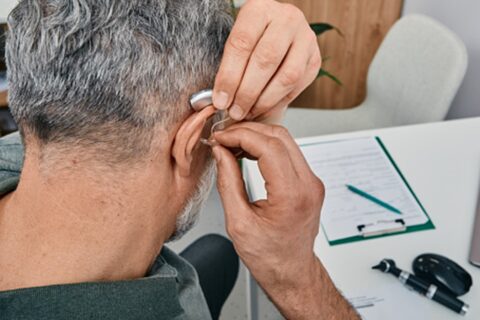The Importance of Hearing Evaluations

Hearing enables us to communicate, connect with others, and enjoy the sounds of the world around us. However, hearing loss can occur gradually over time, and many people may not even realize they are experiencing hearing difficulties until the condition has advanced significantly. This is why regular hearing evaluations are essential, even if you believe you hear just fine.
Hearing Loss Is Often Gradual and Unnoticeable
Hearing loss typically develops gradually, especially in age-related hearing loss (presbycusis). Each decade of our lives, we lose 5% of our hearing nerves. By age 65, we only have 67% of hearing nerves remaining. The changes may be subtle, and individuals may unconsciously compensate for their hearing difficulties by asking others to repeat themselves, turning up the volume on electronic devices, or leaning in during conversations. These coping mechanisms can mask the early signs of hearing loss and lead individuals to believe that their hearing is still normal. Regular hearing tests can detect any changes in hearing sensitivity and ensure early intervention if necessary.
Preserving Cognitive Function
Research has shown a significant link between hearing loss and cognitive decline. When individuals struggle to hear, their brains must work harder to process sounds and understand speech, diverting cognitive resources from other important tasks. This cognitive strain can contribute to mental fatigue, reduced cognitive function, and an increased risk of cognitive conditions such as dementia and Alzheimer’s disease. By identifying and addressing hearing loss early on, individuals can potentially reduce the cognitive burden and maintain better brain health.
Enhancing Communication and Relationships
Hearing loss can strain interpersonal relationships and communication. People with untreated hearing loss may misinterpret or miss crucial parts of conversations, leading to misunderstandings and frustration for both themselves and their loved ones. Regular hearing tests can identify any hearing issues and facilitate appropriate interventions like hearing aids or assistive listening devices. By improving hearing, individuals can actively participate in conversations, strengthening their relationships and social connections.
Early Detection and Intervention
Early detection of hearing loss allows for timely intervention, leading to better outcomes. When hearing difficulties are left untreated, they can worsen over time, potentially leading to irreversible damage to the auditory system. However, with early identification, various treatment options can be explored, including hearing aids, cochlear implants, or other assistive devices. These interventions can significantly improve an individual’s quality of life and reduce the negative impact of hearing loss.
Increased Safety
Hearing loss can compromise an individual’s safety in various situations. For instance, being unable to hear warning sounds like car horns, alarms, or sirens can put individuals at risk for accidents or injuries. In work environments with potential hazards, hearing loss can impair situational awareness and response times. Regular hearing tests can help identify any hearing issues that might affect safety, enabling individuals to take appropriate precautions and adapt their surroundings accordingly.
Addressing Underlying Health Conditions
Hearing loss can be a symptom of underlying health conditions, some of which may require medical attention. Conditions such as ear infections, tumors, or circulatory issues can lead to hearing problems. A hearing test can help pinpoint the cause of the hearing loss, allowing healthcare professionals to address any potential underlying health issues.
Improving Overall Well-Being
Hearing is intricately connected to our emotional well-being and mental health. Untreated hearing loss can lead to feelings of isolation, anxiety, and depression. By addressing hearing issues proactively, individuals can enjoy a better overall quality of life, experiencing less stress and improved emotional health.
Regular hearing tests are essential for maintaining optimal auditory health and overall well-being. Even if you believe you hear just fine, changes in hearing can occur gradually and unnoticed. By detecting hearing issues early on, you can preserve cognitive function, enhance communication, ensure safety, and address any underlying health conditions. Remember that hearing is a precious sense, and taking care of it through routine hearing tests is a vital step in living a fulfilling and engaged life. If you haven’t had a hearing test recently, consider making an appointment at Florida Gulf Coast Hearing Center to ensure your hearing health remains at its best.


